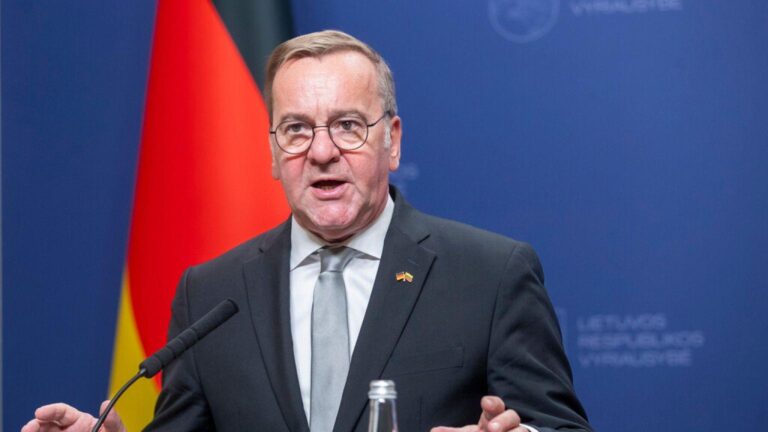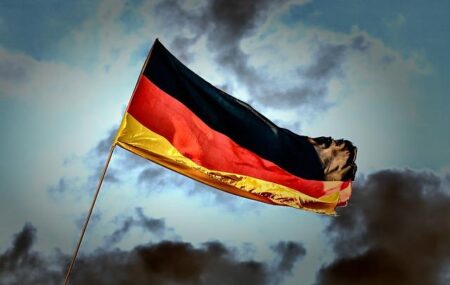Germany’s Defence Minister has arrived in Ukraine for high-level discussions aimed at enhancing military support amid ongoing conflict in the region. The visit underscores Berlin’s commitment to bolstering Kyiv’s defense capabilities as tensions with Russia persist. Talks are expected to focus on the delivery of weapons and strategic assistance, reflecting Germany’s pivotal role in shaping European security dynamics.
German Defence Minister’s Visit Signals Strengthened Military Cooperation with Ukraine
During a pivotal visit to Kyiv, the German Defence Minister engaged in high-level discussions with Ukrainian officials, underscoring Berlin’s commitment to enhancing military collaboration amid the ongoing conflict. The talks primarily focused on accelerating the delivery of advanced weaponry and expanding technical support to strengthen Ukraine’s defense capabilities. Officials highlighted the urgency of reinforcing Ukraine’s frontlines, reflecting Europe’s increasing strategic alignment in response to regional security challenges.
Key outcomes and areas of cooperation outlined include:
- Deployment of modern defensive systems: Immediate dispatch of anti-aircraft and artillery units aimed at protecting critical infrastructure.
- Training initiatives: Enhanced joint exercises and tactical training programs for Ukrainian forces conducted by German military advisors.
- Intelligence sharing: Improved communication channels for real-time battlefield intelligence exchange.
- Logistical support: Streamlined supply chains for rapid delivery of ammunition and spare parts.
| Support Category | Details |
|---|---|
| Weapon Systems | Surface-to-air missiles, armored vehicles |
| Training | Joint tactical drills, leadership development |
| Logistics | Ammunition supply, maintenance support |
| Intelligence | Secure communication networks, data exchange |
Detailed Assessment of Ukraine’s Weaponry Needs Under Discussion
In a move reflecting intensified cooperation, the German defence minister engaged in comprehensive talks with Ukrainian officials to evaluate the country’s immediate and long-term military requirements. These discussions focused on identifying critical gaps within Ukraine’s current arsenal and detailing the types of weaponry necessary to enhance defensive operations amid ongoing regional tensions. Emphasis was placed on the integration of advanced technology and the modernization of existing platforms, ensuring alignment with NATO standards and interoperability with allied forces.
Key priorities emerged during the evaluation, highlighting the urgent need for both offensive and defensive systems. The delegation outlined several categories of armaments considered vital for Ukraine’s strategic objectives:
- Air defence systems: to counteract escalating aerial threats
- Anti-tank weaponry: for bolstering ground resistance capabilities
- Surveillance drones: to improve battlefield intelligence and reconnaissance
- Logistical support equipment: ensuring sustained operational readiness
| Weapon System | Purpose | Priority Level |
|---|---|---|
| Patriot Missile Systems | Long-range air defence | High |
| Javelin Anti-Tank Missiles | Close-quarters tank deterrence | High |
| MQ-9 Reaper Drones | Surveillance and targeted operations | Medium |
| Tactical Transport Vehicles | Mobilization and supply chain | Medium |
Recommendations for Accelerating Deliveries and Enhancing Defensive Capabilities
Streamlining logistics through closer coordination among allied nations is essential for speeding up the delivery of critical defense equipment to Ukrainian forces. This involves optimizing transport routes, reducing bureaucratic hurdles, and leveraging digital tracking systems to ensure transparency and efficiency. Additionally, increasing the use of local storage hubs within Ukraine can dramatically cut down delivery times and enable rapid redistribution where it is most needed.
To bolster defensive capabilities, it is crucial to invest in advanced training programs alongside weapon deliveries. These should focus on integrating new technologies, such as drone surveillance and electronic warfare tools, while also enhancing tactical knowledge among frontline units. Collaborations between German and Ukrainian military experts can help tailor support packages that maximize combat effectiveness while ensuring sustainable, adaptive defense strategies.
Closing Remarks
As discussions continue, the visit underscores Germany’s evolving stance on military aid to Ukraine amid ongoing tensions in the region. Observers will be closely watching the outcomes of these talks and their potential impact on the broader security landscape in Eastern Europe. Further updates are expected as both parties seek to navigate the complexities of defense cooperation.




